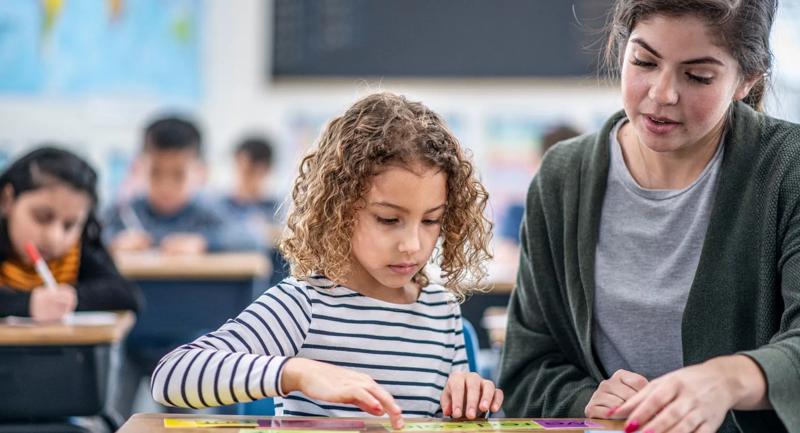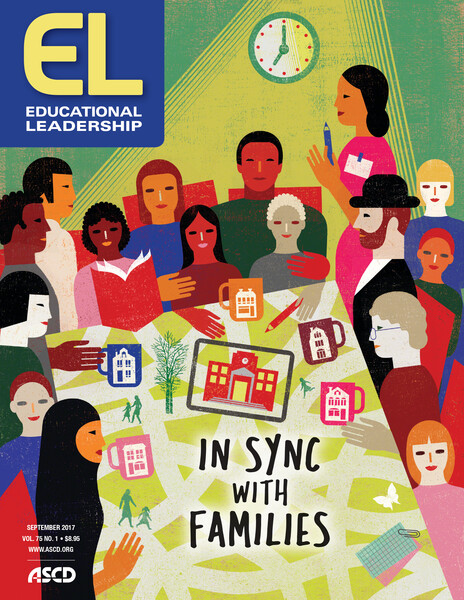My first memorable encounter with a student's parent happened early in my teaching career at the middle school where I taught for 20 years. The incident seemed designed to evoke avoidance behavior in me when it came to dealing with parents. A mother called me on the school phone just as the day was ending. The office was full of my colleagues, other parents, and the principal—all of whom heard my halting responses to her tirade and saw me unsuccessfully attempt to stem a flood of tears. The parent was calling to tell me I had permanently extinguished any interest her son might ever have had in writing because I had given him a low grade on a piece he had recently turned in. Devastated at the thought that I had ruined a young man's interest in a form of expression I deeply valued, I was reduced to sleeplessness and a complete sense of unworthiness—until I got an unexpected assist.
The Beginning of a Better Way
For a parent conference the following week, this mother brought her son along to the meeting. Early in the conversation, she asked him to explain to me how he felt about the low grade. Apparently she had not discussed the issue with him in advance, and she was clearly surprised by his response. "It's OK," he said, "because it's the grade I earned. I didn't really try at all on the assignment, and Ms. T. did her best to encourage me to do good work."
Because of my lack of experience and confidence, the boy's honesty meant more to me than it probably should have. I was also fortunate that his mother proceeded to make a heartfelt apology, which led to the three of us having a comfortable conversation punctuated with laughter. I left that evening with a sense that the boy's mother and I were on the same team in wanting to help the young man. Perhaps because I was so impressionable at the time, that feeling lingered into future encounters with parents of the students I taught that year—and the next year, and the next.
I came to see parents as my partners in teaching and learned to build trust with them. I realized that parents needed from me what their children needed: affirmation, goals we could share, and support for achieving them. When I could convey to parents my desire to serve their child effectively, my sense of gratitude for the opportunity to both teach and learn from their child, and my optimism about working with them to support their child's growth, we could listen to one another, plan together, and genuinely look forward to the next opportunity to talk together.
Teaching and Learning Together
There were other ways that parents' needs paralleled those of their young learners. They needed to have a sense of shared goals—ones they contributed to as much as I did. They also needed scaffolding on how to work effectively with their child toward those goals. They needed timely feedback on how things were progressing and to know that the messages they directed my way were important to me.
There were, of course, still plenty of times when the input I got from parents was difficult to hear. Despite my best attempts, I wasn't adequately challenging Brent. William was afraid to contribute to class discussions because he feared his peers would taunt him. Yana cried every time she had a writing assignment because she had so much to say, but so much trouble turning her ideas into words. But the messages—difficult or not—were delivered in trust and with the faith that a teacher wanted to understand and support a young person of inestimable importance in their world. I always learned from those messages.
When I realized there were a good number of parents who were "overinvested" in their child's grades, I sent home explanations with each major assignment, explaining to parents the difference between beneficial and harmful parental "help." (This worked more often than not—sometimes because parents understood, other times because a student reminded their parents about the guidelines. "I'm supposed to do this myself," a student would say.) When parents of advanced learners wanted to ensure that their children would receive only As, I talked with them about the incompatibility of comfort and growth. For parents whose own childhoods lacked models of effective parenting, I shared "try this" strategies, which were received with gratitude rather than offense.
In the end, I understood that I had a depth of knowledge about the age group I taught that a parent is unlikely to achieve. On the other hand, parents had a depth of knowledge about their children that I couldn't piece together by myself. When we met with shared appreciation for a young person and mutual intent to help that young person build a good life, parents, teacher, and children were all beneficiaries.





